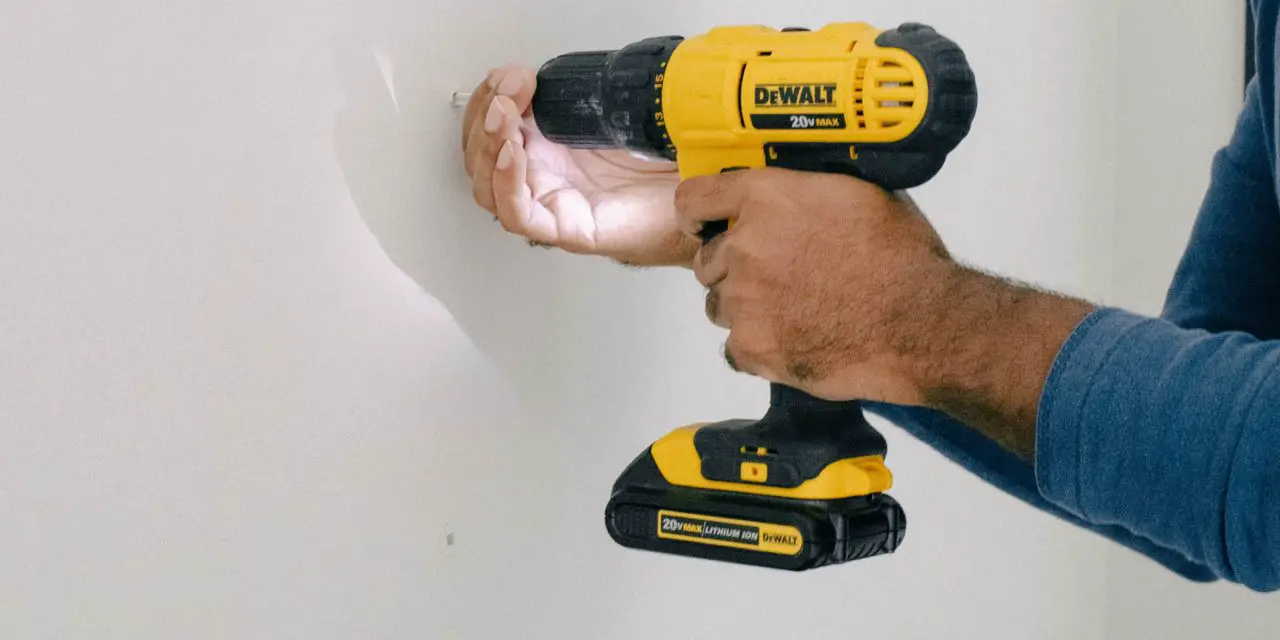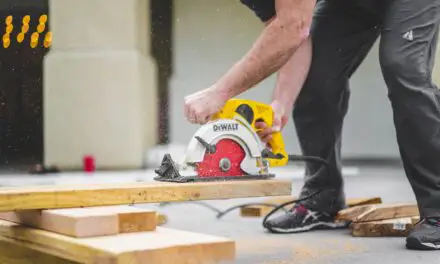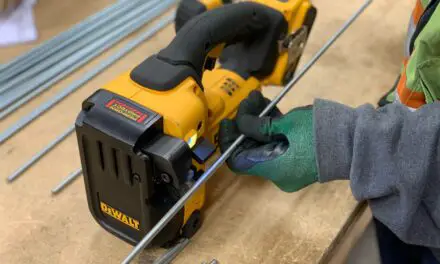Cordless tools make it easy to enjoy working outdoors and pursue hobbies in most weather conditions. If you often work in wet conditions, it is challenging to keep your tools dry and may cause concerns like if the batteries can get wet or if it is safe. So, can DeWalt batteries get wet?
Standard DeWalt batteries can get wet because they are not fully waterproof. While the batteries are tightly packed, they can only withstand small water splashes. However, significant quantities of water or rain can get in and damage the battery and tool.
While a little water will not damage DeWalt batteries, it is important to know how to take care of your power tools to ensure they last longer. Keep reading to find out what happens when your DeWalt batteries get wet and what you can do to prevent it from happening.
Can DeWalt Batteries Get Wet?
As we mentioned before, DeWalt tools aren’t fully waterproof. So how much water can they repel?
Manufacturers designed the battery elements to keep moisture out in several ways:
- The elements are closely packed together and sealed.
- The shells and stickers around the battery are plastic and non-porous to prevent contact with water.
However, there are some gaps where water can find its way into the battery.
Can I Use Cordless DeWalt Tools in Wet Conditions?
If you are working outside in the rain, you may wonder if it is safe to use cordless power tools.
Although DeWalt batteries are slightly waterproof, you should be careful during wet conditions. While most power tools can withstand wetness, moisture can still get into the battery.
The battery is not directly exposed to water when in the tool and, therefore, is more water resistant. Water can get between the joint where the battery connects to the tool or the seal where two batteries connect, but these joints are very tight, so moisture is unlikely to penetrate unless the tool is submerged in water or left in the rain for too long.
Can I Recharge a Wet DeWalt Battery?
Sometimes you may accidentally get your DeWalt batteries wet and want to recharge and use them.
While you could try, recharging a wet battery is unsafe because it could short circuit and cause serious harm. Charging wet batteries causes circuit panel corrosion, decreasing battery life. Additionally, the soaked wires damage the electric system causing the battery not to charge and die.
What Happens When DeWalt Batteries Get Wet?
You do not need to panic if your DeWalt battery gets a bit of water on it but is charging, and the power tool is working fine. However, if moisture gets inside the battery pack, it can short out and catch fire resulting in property damage or personal injury. Additionally, you can get shocked when using the power tool or, in rare cases, explode.
DeWalt batteries use lithium-ion cells that react with water to produce hydrogen and lithium hydroxide, which are extremely flammable and dangerous. In addition, the metals in the battery pack oxidize when exposed to moisture resulting in rust and reduced battery efficiency.
How Do I Dry Out a DeWalt Battery?
If your DeWalt battery is wet, dry it out completely before attempting to charge it.
You can try the following ways to remove the water:
- Wipe off any water on the battery with a dry cloth or tissue
- Place the battery in a rice bowl to remove the moisture
- Blow the open battery with cool air with a fan
- Leave the battery in the sun to dry or place it next to a heater
The battery may be too damaged if it was fully submerged in water or left in the rain for too long, but these are all still worth trying.
How Can I Keep My DeWalt Battery Safe?
Improper storage and handling of your DeWalt battery leads to damage and can have catastrophic results.
You can improve the longevity and performance of your battery using these tips:
- Store your DeWalt battery in a dry place.
- Keep your battery away from corrosives, liquids, and high temperatures.
- Charge your batteries using approved chargers in a dry, cool place. If they do not charge, do not attempt to repair them but visit a DeWalt service center.
- Do not use batteries with defects, cracks, or if visibly damaged.
- Do not wash your batteries; wipe with a clean cloth.
- Fully charge and remove your batteries from the tool before storage.
As we previously discussed, damaged batteries are dangerous to use and cause harm to you. If you need to dispose of your DeWalt battery, take them to the nearest service center.
Conclusion
Cordless power tools bring a lot of convenience to our lives. However, taking care of your DeWalt battery is essential in ensuring the safety and efficiency of your tools. Ensure that the battery remains dry.





